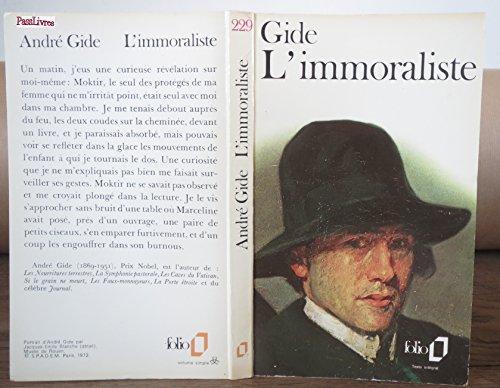Julia_98 reviewed L'immoraliste by André Gide
Freedom, Desire, and the Mirror of the Self: Revisiting André Gide’s The Immoralist
5 stars
André Gide’s The Immoralist (1902) is a psychologically intricate and morally provocative novel that explores the tension between societal expectations and individual authenticity. Reading it felt like stepping into a quiet but relentless storm — the kind that doesn’t raise its voice but unsettles everything within.
The novel follows Michel, a young scholar who, after recovering from a near-fatal illness, undergoes a profound transformation. Once a conventional, disciplined academic, Michel begins to reject moral norms and embrace a life driven by instinct, aesthetic experience, and personal desire. His travels through North Africa and later France mark both a physical and spiritual journey, as he distances himself from his devoted wife Marceline and from the values that once defined him.
Told as a retrospective confession to friends, Michel’s narrative is both lucid and evasive. What struck me most was the ambiguity of his voice — he is at once …
André Gide’s The Immoralist (1902) is a psychologically intricate and morally provocative novel that explores the tension between societal expectations and individual authenticity. Reading it felt like stepping into a quiet but relentless storm — the kind that doesn’t raise its voice but unsettles everything within.
The novel follows Michel, a young scholar who, after recovering from a near-fatal illness, undergoes a profound transformation. Once a conventional, disciplined academic, Michel begins to reject moral norms and embrace a life driven by instinct, aesthetic experience, and personal desire. His travels through North Africa and later France mark both a physical and spiritual journey, as he distances himself from his devoted wife Marceline and from the values that once defined him.
Told as a retrospective confession to friends, Michel’s narrative is both lucid and evasive. What struck me most was the ambiguity of his voice — he is at once articulate and blind, self-aware and self-justifying. Gide never imposes judgment; instead, he lets the reader experience the discomfort of uncertainty, of admiring and distrusting Michel in equal measure.
The Immoralist interrogates the cost of self-discovery and asks whether liberation from convention is true freedom or simply a subtler form of self-absorption.
For me, the novel was a mirror — sometimes flattering, often unsettling — reflecting the paradoxes of desire, identity, and the moral complexity of choosing oneself over others. Gide’s prose is spare but luminous, and his themes remain remarkably relevant.
This short yet dense novel left me with questions I’m still carrying — and that, to me, is a mark of its quiet brilliance.

